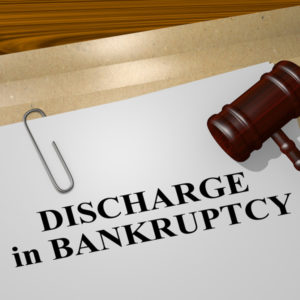North Carolina Chapter 13 Bankruptcy Discharge
Many people who file for bankruptcy are dealing with hardships, such as unforeseen medical expenses, divorce, and other personal finance issues. For individuals such as these, filing for bankruptcy is often the most effective way to handle unmanageable debt and achieve financial stability.
Under Chapter 13 bankruptcy, also known as “the wage earner’s plan,” debtors make an effort to repay a portion of their debts over a period not exceeding five years in exchange for having the remainder of most of their debts discharged, or wiped out.
If you’re wondering whether Chapter 13 bankruptcy could be right for you, continue reading or contact the experienced North Carolina Chapter 13 bankruptcy lawyers of the Sasser Law Firm for a free consultation. We’ll provide you a straightforward, honest assessment of the best options for your circumstances.
How Do You Qualify for Chapter 13 Bankruptcy Discharge in North Carolina?
Not everyone can file for Chapter 13 bankruptcy in the first place. To qualify:
- You must receive regular income.
- You must have less than $419,275 in unsecured debt and less than $1,257,850 in secured debt. However, unliquidated and contingent claims will not count towards those totals.
- You must not have filed a Chapter 13 or Chapter 7 bankruptcy petition within the last 180 days that was dismissed because you failed to comply with court orders or because you asked the court to dismiss your case after a creditor filed a Motion for Relief from Stay.
Once you determine you are eligible and file for Chapter 13 bankruptcy, you will qualify for debt discharge after you finish making the payments in your court-approved repayment plan. If you encounter circumstances beyond your control that prevent you from making the payments, you may qualify for a hardship discharge. To file for a hardship discharge, you will need this form from the U.S. Courts website.
Dischargeable Debts in Chapter 13
Some of the most common types of debts that can be discharged in Chapter 13 bankruptcy include:
- Credit card debt – Credit card debt is a non-priority unsecured debt, so outstanding credit card debt can be discharged after you complete your repayment plan.
- Medical debt – medical debts can be discharged in Chapter 13.
- Unsecured personal loans – Personal loans that are not secured by any collateral, such as payday loans, are dischargeable.
- Certain tax debts – Tax debts that are several years old may be considered non-priority debts and therefore eligible for discharge so long as the tax returns were filed more than two years prior to the bankruptcy filing and ideally filed on time.
- Past-due utility bills – If you have past-due electric, water, gas, or other utility bills, you may be able to discharge this debt with a Chapter 13 plan.
- Divorce settlements – Depending on the nature of your settlement, some awards may be discharged as long as they are not for support or maintenance.
In some cases, student loan debt may be eligible for discharge. To qualify, you would need to prove that repaying the debt would impose an “undue hardship”. This is a very difficult issue to prevail on. Most student loan debt does not discharge in chapter 13.
Non-Dischargeable Debts in Chapter 13
The following debts are generally non-dischargeable in Chapter 13:
- Child support or alimony payments – Child support and spousal support payments from divorce settlements or other family court orders cannot be discharged. However, if you are past due, you can work out a manageable repayment plan when you file.
- Recent tax debts – Income tax debts you incur within the past three years are considered priority debts that must be paid in full by the end of your Chapter 13 repayment plan.
- Debts related to wrongful acts – Any debts related to wrongful acts such as intoxicated driving, willful or malicious behavior, or criminal penalties are not eligible for discharge.
- Debts not listed in your repayment plan – If you fail to include a creditor or provide erroneous information in your bankruptcy documents, any associated debts may not be discharged through bankruptcy.
When Will I Receive My Chapter 13 Discharge?
 When you file your initial bankruptcy petition, the plan is typically confirmed from four to six months later. Most Chapter 13 repayment plans last three to five years. In most cases, filers receive their discharge orders within one to three months after completing their court-approved repayment plan.
When you file your initial bankruptcy petition, the plan is typically confirmed from four to six months later. Most Chapter 13 repayment plans last three to five years. In most cases, filers receive their discharge orders within one to three months after completing their court-approved repayment plan.
After you have received your discharge, your eligible debts are wiped out. If creditors holding discharged debt try to collect from you anyway, you may be entitled to take legal action. It is highly unlikely a creditor would seek to collect.
Contact a Chapter 13 Bankruptcy Lawyer in Cary, NC Today
At the Sasser Law Firm, our attorneys concentrate on North Carolina bankruptcy law. We have filed more than 9,000 bankruptcy cases, including emergency cases in which our clients faced foreclosure or repossession of their cars.
When you work with us, we will never pressure you into declaring bankruptcy. Our Chapter 13 attorneys require no upfront fees or cost to file bankruptcy. To learn more about our services, call us today at (919) 319-7400 or contact us online to get started with your free case review.



 When you file your initial bankruptcy petition, the plan is typically confirmed from four to six months later. Most Chapter 13 repayment plans last three to five years. In most cases, filers receive their discharge orders within one to three months after completing their court-approved repayment plan.
When you file your initial bankruptcy petition, the plan is typically confirmed from four to six months later. Most Chapter 13 repayment plans last three to five years. In most cases, filers receive their discharge orders within one to three months after completing their court-approved repayment plan.











